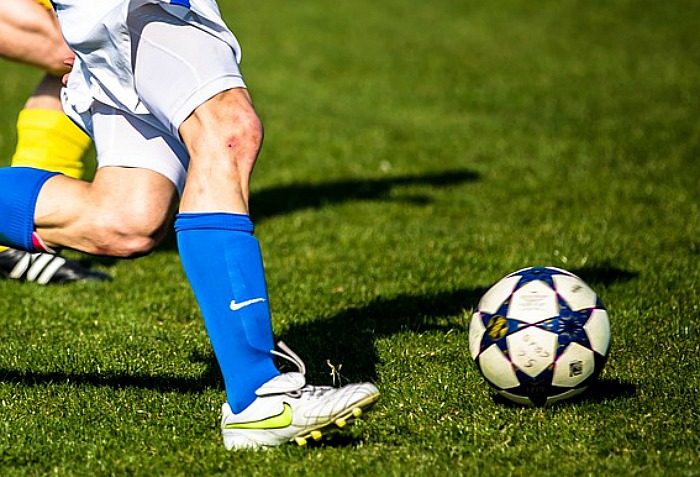
The problem is clear… but the solution is anything but.
Non league football in the UK faces tough times with tightening of belts.
Leagues at Nantwich Town’s level are without a viable league sponsor and face attempts to reconcile a landscape that is set to change for a long time against the backdrop of the coronavirus pandemic.
High profile sports betting operator BetVictor activated a break clause in its contract to sponsor non-league football in the UK, right before the pandemic took hold.
It put the Northern Premier League, Isthmian League and Southern League in between a proverbial rock and a hard place.
And now with the contract’s official end date of July 9 gone, and without the backing of a new sponsor in place, the future of non league football, which is the bedrock of local communities, is uncertain.
BetVictor’s decision to serve notice on the Northern Premier League, Isthmian League and Southern League was made in the first week of March.
But it only came to light later on. Based on the timing of the notice, it’s understood the decision to activate the break clause in each of its contracts was not influenced by the unprecedented public health crisis.
On the contrary, it came within 72 hours of the Football Association ratifying the decision to pull the plug on 19-20 football seasons at Steps 3 and beyond, pronouncing those campaigns null and void.
In a letter sent to clubs it stated: “BetVictor have terminated the sponsorship for a number of reasons, but mainly due to the fact that the increasing compliance restrictions and challenges faced in their first seven months outweighed the benefits they were drawing from the sponsorship. However, the escalating negativity towards betting in football did not help, nor did – most disappointingly – compliance breaches by clubs in and outside of the Isthmian League.”
It added: “Although the search for a new sponsor has begun, the Covid-19 crisis makes it very difficult to engage meaningfully with potential replacements. So, as of now, the Leagues operating at Step Three and Four have no main sponsor for season 2020/21.”
The timing of the decision couldn’t have been any worse, thrusting non-league football into a sponsorship abyss in excess of £100,000 a year just before an unimaginable global pandemic tipped the world off of its axis and wreaked havoc everywhere.
The impact of the coronavirus pandemic on lower league football, players, fans and livelihoods is – in a word – devastating.
While those at the top of the football pyramid are likely to ride out the financial effects of the unprecedented public health crisis, those at the bottom are left staring into a blackhole where gnawing uncertainty reigns.
It’s as yet unknown how these leagues will survive.
Kick-starting the season next month without the big money promised by BetVictor’s sponsorship means the leagues will have to draw on their own finances in 2020-21. And those “in-the-know” know that those pockets don’t run deep.
And yet, the reaction to BetVictor’s withdrawal was welcomed by some within the communities directly affected.
Even if prospects of getting another major company with deep ties within mainstream British media to assume the role of league sponsor are slim, it’s held a small price to pay for the otherwise perceived reputational damage in association.
In fact, football clubs like Sholing FC waded in with enthusiasm on the heels of the news of BetVictor’s departure, joining many on social media bidding BetVictor good riddance.
Won't be missed. There was zero benefit to us & it went against our ethos as a community & youth focused club.
— Sholing FC (@sholingfc) April 11, 2020
Through sponsorships and the razzle-dazzle advertising – inside stadiums, logos on football shirts – the gambling industry has embedded itself into the beautiful game, sparking debate about how it impacts society in general and growing concern that impressionable fans are being inappropriately subjected to a barrage of gambling ads.
The controversy behind top-tier football’s association with gambling operators is an on-going debate.
At the lower level though it becomes an even bigger ethical question: the idea of betting sites sponsoring local football, of local football profiting from betting partnerships simply isn’t synonymous with the idea of wholesome communities and youthful football.
It’s important to understand the context of why this happens.
The UK is still very conservative when it comes to online gambling, in fact it is one of the European countries that regulates online gaming, including sports betting.
UK was one of the first countries to start regulating online games in 2005 and in 2014 a new law was created in relation to the issue.
The change in mentality will take place gradually. The important thing is that the Sportsbooks that carry out the sponsorship or where the sports betting takes place are licensed by the UK Betting Commission.
It’s fair to say, the goal posts are starting to shift on sports betting advertising in top-tier football.
There’s growing pressure for more responsible messaging, advertising and sponsorship.
But change – as it ever is – is slow to come. The billion-dollar industry that the gambling operators represent is a gift horse many clubs are loathe to snub.
By the latest count, nearly half of Premier League football clubs in the UK have the backing of a gambling operator.
And various studies conducted recently on televised football matches and highlights programmes revealed that gambling logos and branding appeared on screen over nearly 70% of the running time.


















Recent Comments